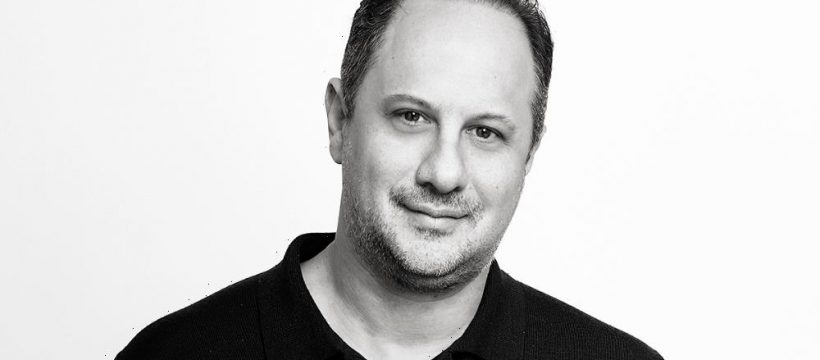In the niche world of comedy touring, Mike Berkowitz has always been “the guy.” Over his 21-year career, the agent has been a go-to dealmaker in the live entertainment space, diversifying the income of star clients and launching digital crossovers.
Berkowitz, who co-heads WME’s comedy group, first distinguished himself by tapping into the lucrative college market. He also blazed a trail for new acts to reach stadium-level stardom in a landscape where only the likes of Eddie Murphy and George Carlin once played.
The sector has exploded in the past decade, and Berkowitz has been at the forefront. In 2022, he booked and shepherded production on Bill Burr’s $31 million-grossing tour, as well as Kevin Hart and Chris Rock’s co-headlining shows. He sent out John Mulaney ($50.2 million) and Amy Schumer ($9 mil- lion), the latter for her first tour in five years. Next, he’ll map out dates for Ramy Youssef, Ilana Glazer and Jerrod Carmichael.
Berkowitz has led WME’s comedy vertical — alongside Allysa Mahler and with support from protégé Marcus Levy (who was just upped to partner) — since 2018. On his fifth anniversary, he delivers five insights about the state of his business.
Audiences, Not Studios, Make Stars
“It used to be we’d invite executives to see a set or arrange a blind pitch meeting,” Berkowitz says. Now, thanks to social media, comics can build a following on their own. By the time they get to Berkowitz, “we’re inviting executives to a sold-out 3,000-seat venue where people are chanting your name.” Take social-leaning clients Sam Morril and Chris Distefano, who will embark on theater tours in 2023. Theo Von, who elder Millennials will fondly remember as a star of the MTV reality competition “Road Rules,” has slowly become a touring and podcasting force over the past decade. He’s now ready to go to market with his first feature film as writer and star.
Buyers admire Berkowitz’s approach in a world of fleeting viral fame. “Mike is an innovator. He’s not necessarily looking for the next best deal for his clients, but their larger trajectory,” says Robbie Praw, Netflix VP of standup and comedy.
Demand for a laugh has been strong amid the slog of COVID-19, and consumers were particularly keen to return to public spaces in the first half of 2022. Berkowitz says his group has “seen probably about a dozen comics move from the club level to theaters in the past year.”
College Gigs Are a Third Rail
In 2015, Jerry Seinfeld announced he’d no longer play colleges due to the “creepy PC” culture around stand-up. As social-justice movements evolve, so have these bookings, Berkowitz says. Sensitive students only want acts with brands they trust. “It’s rare that this audience doesn’t know what they’re getting. If you’re booking Mulaney, you know he’s going to be relatively clean,” he says. Developing comics are riskier as “they want to say whatever they want.”
Controversy Means More Security
Berkowitz acknowledges the rise of verbal and physical assaults on comics — from Dave Chappelle getting tackled onstage at the Hollywood Bowl to the unknown Ariel Elias having a pint glass chucked at her head during a set at the Jersey Shore (Berkowitz signed her after the incident). “Kevin Hart carries a baseball bat onstage now as a joke,” the agent says. “But, yes, security budgets have risen over the past few years — as they should.”
After Trump was elected president, Berkowitz noticed an escalation in how audience members began to respond to comics.
“When Amy Schumer was on her arena tour in 2016, we had someone screaming something about Trump and the election. There’s something to be said for the world we’re in right now. Differing political views and people feeling like they have a voice when maybe they should just be sitting there getting entertained,” he says.

Streaming Specials Are King, but Comics Have the Power
In the streaming era, Berkowitz says, the solo comedy special is equivalent to a pop star dropping an album. The tours he books for his clients provide leverage at the deal table. Instead of front-loading with a buyer, talent can shoot a show and edit content before taking the product to market — effectively driving up the price. Take Burr, who did not sell distribution rights to his historic Fenway Park show before his tour began. When those go up for sale, they’ll likely fetch a number Red Sox pitcher Chris Sale would be happy with.
Next Big Earners: Podcasters
The group noted a demand for live events from podcasters and social media stars. Levy says he’s “really excited about some of our podcasters who have started touring in a big way, like Dax Shepard’s ‘Armchair Expert’ or ‘Last Podcast on the Left,’ which played venues unheard of for a podcast — places like Graceland and Red Rocks Amphitheatre.”
Read More About:
Source: Read Full Article
